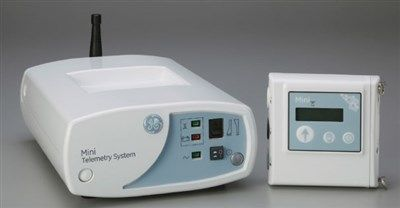
Technology Fuels Telemetry Market
Medical telemetry devices are used to monitor a patient’s vital signs. There are also devices for the specific monitoring of cardiac data. These devices help with treatment options and can help with medical diagnosis.
Fri Jul 17 2015

Medical telemetry devices are used to monitor a patient’s vital signs. There are also devices for the specific monitoring of cardiac data. These devices help with treatment options and can help with medical diagnosis. The global telemetry market, which includes health care applications, is expected to reach new heights over the next five years.
“According to a new market research report the total value of the global telemetry market is estimated to be $109.54 billion in 2014, and is expected to reach $243 billion by 2020, registering a CAGR (compound annual growth rate) of 14.20 percent,” MarketsAndMarkets reports.
New technology is one factor pushing the market’s growth.
“The continued requirement for cloud-based services, scalability and interoperability will be the driving factors for the global telemetry market,” MarketsAndMarkets reports.
The health care sector of the global telemetry market is one of the key areas mentioned in the growth prediction.
“Health care, telematics, energy and utilities, and retail sectors contribute the maximum share to the telemetry systems market,” according to MarketsAndMarkets.
Transparency Market Research, a U.S.-based provider of syndicated research, customized research, and consulting services, forecasts growth in the ECG telemetry market. An electrocardiography or ECG device monitors and records electrical activity of the heart the device detects and picks up electrical impulses generated by the polarization and depolarization of cardiac tissue and translates them into waveform. This eventually helps a physician or cardiologist to diagnose cardiac abnormalities as well as size and position of chambers.
The growing instance of cardiovascular disease is one reason for expected growth. According to a study conducted by The Heart Foundation a person dies every 33 seconds due to cardiovascular disease.
“Technologic advances and increasing government interventions to render quality medical devices at an affordable price demand for miniature and telemetry devices have grown tremendously in the past couple of years,” according to Transparency Market Research. “An ECG telemetry device in majority of cases is a non-invasive product that allows continuous real-time detection of a patient’s cardiac rhythm and electrical activity. Signals captured by these ambulatory devices are then transmitted via radiofrequency to a central monitoring station where health care professionals can continuously monitor patient activity and are alerted to rhythm disturbances.”
“ECG telemetry devices are highly useful in addressing the needs of patients that are highly susceptible to cardiac disorders and require continuous medical interventions but cannot afford to stay in hospitals or private clinics,” according to Transparency Market Research. “These devices are gaining a lot of acceptance and support from post-coronary care units and ambulatory service providers. During an emergency situation the ambulatory care units with the help of novel ECG telemetry devices can send real-time cardiac activities to hospitals or physicians which save time and make the entire rescue process hassle free and well planned.”
The report indicates that driving forces for the adoption of these devices in upcoming years include the growing demand for low-cost treatment facilities among hospitals, accurate and precise homecare monitoring devices and the increasing prevalence of cardiovascular disease among baby boomer populations, especially in developed economic countries.
“With growing opportunities, telemetry device manufacturers are adopting several techniques to develop the next-generation devices,” according to Transparency Market Research. “Government interventions to reform the health care sector and infrastructure has inclined the majority of larger hospitals towards investments related to data management systems and computerization of ECG records. Efficient data management system enhances efficiency, reduces data losses and efficient records for appropriate billing. Restraints to the market include high costs associated with initial purchase and continuous need for wireless communication mode or Internet requirement which restrict the acceptance of devices in developing and emerging economies.”
